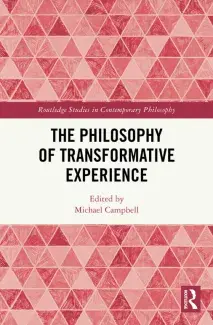
Discover the new Routledge publication!
The recent book chapter written by Sandra Laugier, “Popular culture and transformative experience”, published in the book edited by Michael Campbell on the Philosophy of Transformative Experience (Routledge, 2024), aims to account for the transformation of the subject through aesthetic experience, and focuses on transformation through the shared experience of popular culture.
Stanley Cavell in The Claim of Reason (1979) defined philosophy as the "education of grownups". In his major works on cinema – The World Viewed (1979), Pursuits of Happiness (1981) (on remarriage comedies), Contesting Tears (1997) (on melodrama), and Cities of Words (2004) (which covers the entirety of his teaching at Harvard, alternating between lessons in philosophy and studies of films) – Cavell’s goal is to give popular culture the power to change us. According to Cavell, the value of a culture lies not in its "great art" but in its transformative capacity, the same capacity found in the "moral perfectionism" of Emerson and Thoreau. Cavell has powerfully accounted for the transformation of philosophy brought about by reflection on popular culture, and the self-transformation required by our encounters with new experiences and with the education provided by them. In this chapter the moral transformation which is at stake in the experience film and TV is described in more detail, bringing together the narrative of transformation of the characters and the transformative experience of the viewer, her reappropriation of artistic and hermeneutic authority, and her re-empowerment through the constitution of her singular experience.